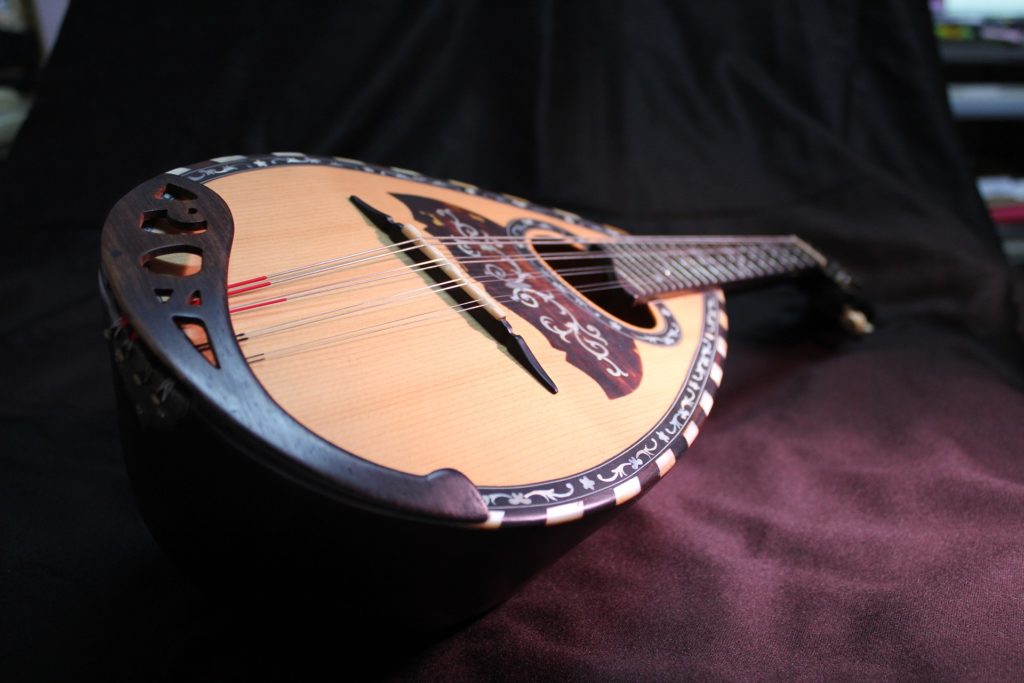Posts Tagged ‘Mandolin Technique’
Mandolin – Correcting Your Technique Can Cause Emotional Pain (Musicians)(Psychology)(Strain)(Injuries)(Posture)(Alexander Technique)(Albuquerque)
This ebook, An Alexander Technique Approach to Mandolin Technique, is published on this website in a PDF format. It is very detailed and practical, and it will give you the physical tools you need to take the limits off of your ability to create the accurate mandolin technique you want without sacrificing your body.
This ebook is also for sale on all AMAZON websites in a KINDLE format.
Located in Albuquerque, New Mexico, U.S.A. (MOVEMENT THERAPY)
F. M. Alexander said that it is difficult to change poor posture, because what you are doing wrong posturally feels right, because you have done it for so long. Conversely, when you change a poor posture to a new habit of balance and ease it will feel wrong at first, and that if you don’t continue with the new habit until what’s right feels right, you’ll revert to the old posture unconsciously.
I want to look at the emotional/psychological equivalent of “what is right feeling wrong” on the mandolin, and what you experience emotionally when you attempt to change your mandolin technique.
You would think that when you are shown a new technique and posture that will make it possible to play the most difficult mandolin music with ease, that the process of replacing what hasn’t worked with what works would be easy physically and emotionally. Maybe not so!
I BELIEVE THE EASE WITH WHICH YOU CHANGE SPECIFIC INADEQUATE MANDOLIN TECHNIQUE AND POSTURAL CHOICES TO ONES THAT WORK CAN BE QUICK OR SLOW, DEPENDING ON YOUR RESISTANCE TO THE NEW TECHNIQUE AND POSTURE. Let me explain.
Let’s assume you really see clearly, objectively, the benefits to changing some of the elements of your mandolin technique, does this guarantee an easy and quick transition to the new? NO! Why? I’ll use my classical guitar training as an example.
After years of struggling with my guitar technique, I finally found a truly fine guitar teacher who could NOT help me with the hurting in my hands and body, even though he improved my sound dramatically. So, I sought out an Alexander Technique who could show me the changes I needed to make to my guitar technique, whole body and hands, to stop hurting and create a pain-free efficient guitar technique.
When I look back at that time, I remember there were lots of moments when, even though what I was doing with the Alexander Technique teacher was truly transforming my poor posture and guitar technique into a unified whole, I was DEPRESSED.
So, there I was in England and had found exactly what I needed to be the guitarist I wanted to be, and I was emotionally hurting. I was doing exactly what I needed to do to be the best guitarist I could be, and I was hurting. Why? I want to generalize my answer, because I have seen as an Alexander Technique teacher some of my mandolin students go through the same emotional discomfort. So, what is going on?
WHEN YOU CHANGE WHAT YOU HAD BELIEVED WRONGLY WAS RIGHT IN YOUR MANDOLIN TECHNIQUE, EVEN KNOWING THE CHANGES ARE RIGHT AND LOVING, YOUR EGO MAY MAKE YOU FEEL BAD. THIS MEANS YOUR LOVING ACT, CHANGING AN INADEQUATE MANDOLIN TECHNIQUE INTO ONE THAT MAKES PLAYING THE MANDOLIN AN EFFORTLESS JOY, IS EXPERIENCED AS YOU DOING SOMETHING WRONG! SO, THE LOVING CHANGES YOU’RE MAKING TO YOUR MANDOLIN TECHNIQUE MAKE YOU HURT EMOTIONALLY. Why?
BECAUSE YOU HAVE SO STRONGLY IDENTIFIED WITH YOUR OLD MANDOLIN TECHNIQUE, YOUR EGO FEELS THREATENED, AND SO YOUR EGO MAKES YOU FEEL BAD!
It isn’t the intention of this short article to go into depth psychologically about why what is good posturally, technically, and psychologically is feeling bad, but to have you be conscious that you are hurting as you do such a nice thing for yourself.
So, first acknowledge that the changes you’re making to your banjo technique are loving, and acknowledge that you are feeling bad, because EGOS USUALLY DON’T LIKE CHANGE, loving or not.
Second, be gentle with yourself as you feel sad or depressed on the mandolin, and be willing to gently observe these feelings, gently being with them and then moving them to the side, as you continue to do what you need to do posturally and technically on the mandolin.
I’m asking you to acknowledge that when what you are doing to change your mandolin technique is loving, and even if you don’t feel good as you make these changes, that it is loving to complete the journey to great technique. Let go of incapacitating yourself with the lie that what is working will never work. HANG IN THERE AND COMPLETE THE JOURNEY!
